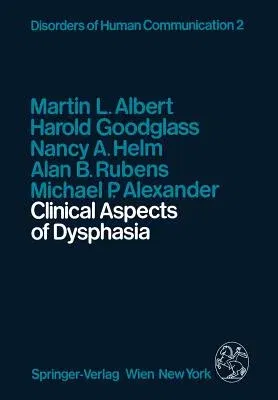This volume is one in a series of monographs being issued under the
general title of "Disorders of Human Communication". Each monograph
deals in detail with a particular aspect of vocal communication and its
disorders, and is written by internationally distinguished experts.
Therefore, the series will provide an authoritative source of up-to-date
scientific and clinical informa- tion relating to the whole field of
normal and abnormal speech communication, and as such will succeed the
earlier monumental work "Handbuch der Stimm- und Sprachheilkunde" by R.
Luchsinger and G. E. Arnold (last issued in 1970). This series will
prove invaluable for clinicians, teachers and research workers in
phoniatrics and logopaedics, phonetics and linguistics, speech
pathology, otolaryngology, neurology and neurosurgery, psychology and
psychiatry, paediatrics and audiology. Several of the monographs will
also be useful to voice and singing teachers, and to their pupils. G. E.
Arnold, Jackson, Miss. F. Winckel, Berlin B. D. Wyke, London Preface
Neurologists, neuropsychologists, speech pathologists and other
clinicians who care for dysphasic patients have often complained that
available books on dysphasia tend to be parochially theoretical, and
insufficiently directed towards clinical reality. These books provide
the categories, labels, and theoretical speculations of one school or
another; but dysphasic patients as often as not do not fit neatly into a
specific theoretical category. Clinical patterns of dysphasic syndromes
of most patients with dysphasia rarely conform fully to the pictures
painted in the textbooks.


